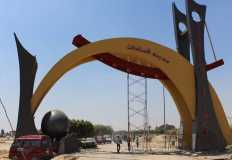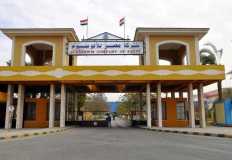Minister of Planning, Economic Development and International Cooperation Dr. Rania Al Mashat announced that Egypt has received funding for 26 projects in the first phase of the INTERREG NEXT MED Cross-Border Cooperation Program for the Mediterranean Basin, thanks to the national coordination efforts led by the ministry in cooperation with the relevant authorities.
This comes within 60 projects benefiting the countries of the Mediterranean basin, with a total funding of 134 million euros, of which 119 million euros are from the European Union.
These projects aim to enhance regional development in the
Mediterranean region and include various sectors such as small and medium
enterprises, tourism, education, scientific research, technology, innovation,
and social inclusion.
The projects also focus on addressing environmental
challenges, such as climate change, promoting sustainability, improving water
and waste management, developing renewable energy, and supporting integrated
coastal zone management.
This cooperation reflects the strong partnership between
Egypt and the European Union, and the efforts exerted to enhance regional
cooperation through the INTERREG NEXT MED Mediterranean Sea Basin Cross-Border
Cooperation Program.
The Ministry of Planning, as the national coordinator of the
program, organized informational sessions to encourage various entities to
submit projects and benefit from the available funding.
Al Mashat added that 18 Egyptian entities are scheduled to benefit from the funding of these projects, including ministries, authorities, and civil society organizations. Among them are the Ministry of Water Resources and Irrigation, SEKEM Development Association, the Egyptian-European Business Organizations Alliance, the Arab Academy for Science, Technology and Maritime Transport, the National Institute of Oceanography and Fisheries, the British University in Egypt, in addition to a number of civil society organizations that played a pivotal role in implementing the projects.





